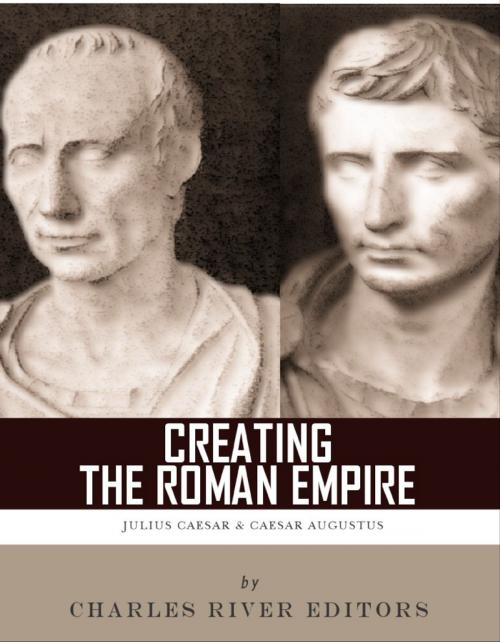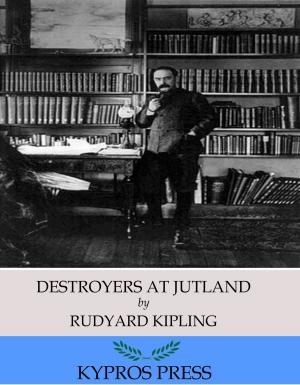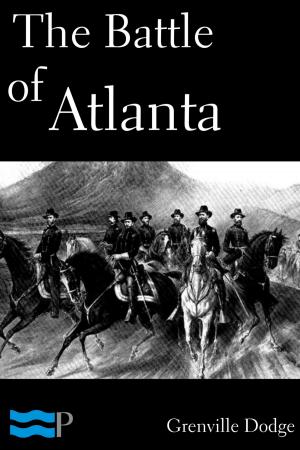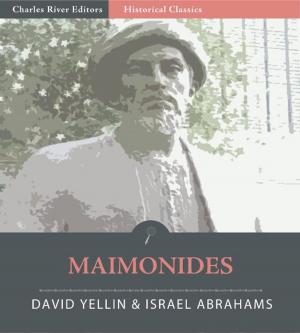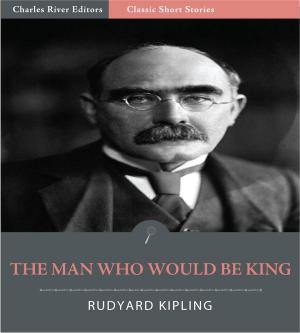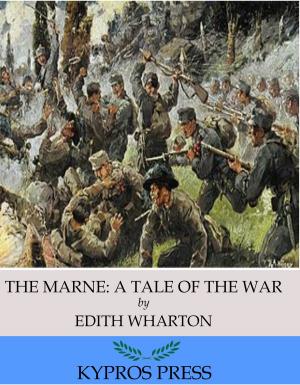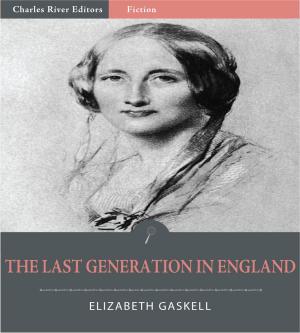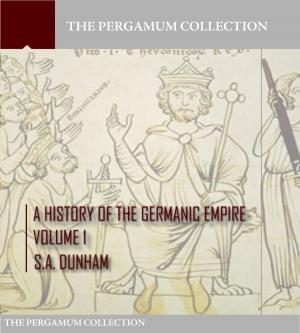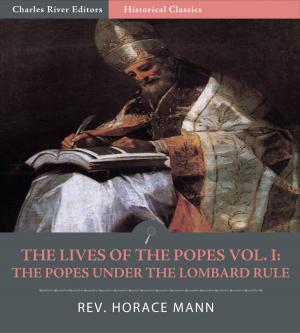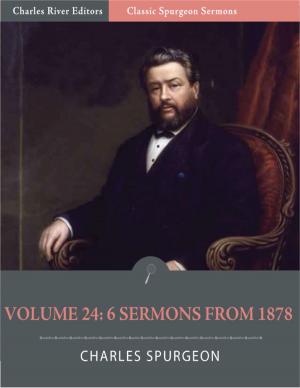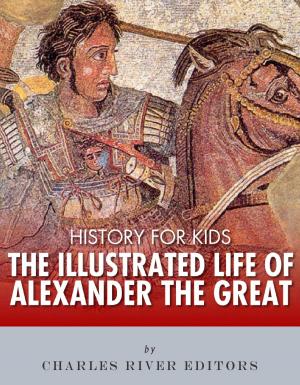Creating the Roman Empire
The Lives and Legacies of Julius Caesar and Augustus
Nonfiction, History, Ancient History, Egypt, Rome, Biography & Memoir, Historical| Author: | Charles River Editors | ISBN: | 9781475318234 |
| Publisher: | Charles River Editors | Publication: | October 7, 2012 |
| Imprint: | Language: | English |
| Author: | Charles River Editors |
| ISBN: | 9781475318234 |
| Publisher: | Charles River Editors |
| Publication: | October 7, 2012 |
| Imprint: | |
| Language: | English |
*Weaves the lives of Caesar and Augustus into one gripping narrative detailing the fall of the Republic and the creation of the Roman Empire. *Includes pictures of famous art depicting Caesar, Augustus, and important people, places, and events in their lives. *Discusses the facts and legends surrounding the assassination of Caesar and the deaths of Antony and Cleopatra. *Includes a Table of Contents.Possibly the most important man of antiquity, and even all of history, was Julius Caesar. Alexander Hamilton, the famous American patriot, once remarked that the greatest man who ever lived was Julius Caesar. Such a tribute, coming from one of the Founding Fathers of the quintessential modern democracy in reference to a man who destroyed the Roman Republic, is testament to the enduring mark that Caesar left upon the world. The ultimate conqueror, statesman, dictator, visionary, and opportunist, during his time in power Caesar expanded the borders of Rome to almost twice their previous size, revolutionized the infrastructure of the Roman state, and destroyed the Roman Republic for good, leaving a line of emperors in its place. His legacy is so strong that his name has become, in many languages, synonymous with power: the Emperors of Austria and Germany bore the title Kaiser, and the Czars of Russia also owe the etymology of their title to Caesar. His name also crept further eastward out of Europe, even cropping up in Hindi and Urdu, where the term for Emperor is Kaisar. Even in his time, Caesar was in many ways larger than life, and because of his legacy as virtual founder of the Roman Empire, much of what was written about and by him during his life and immediately after his assassination was politically motivated. His successor, Octavian Augustus, had a strong interest in ensuring that Caesars life be painted in a favorable light, while Caesars political enemies attempted to paint him as a corrupt, undemocratic dictator who was destroying the old order of the Republic. Of course, Caesar's life and death left a vacuum of power in Rome that was ultimately filled by his chosen heir, Octavian. The importance of Gaius Julius Caesar Augustus (or as he was known from birth, Gaius Octavius Octavian Thurinus) to the course of Western history is hard to overstate. His life, his rise to power, his political, social and military achievements, all laid the foundations for the creation of an Empire which would endure for almost five centuries, and whose traditions, laws, architecture and art continue to influence much of Europe and the world today. Octavian was the first true Roman Emperor, and the first man since the Etruscan Tarquins, five centuries earlier, to establish a successful hereditary ruling dynasty in what had been a proud Republic for over half a millennium. He was a canny strategist, an excellent orator, a fine writer, a generous patron of the arts and enthusiastic promoter of public works, but above all he was a master politician. Octavians great-uncle (and adoptive father) Julius Caesar was a great general, his rival Mark Antony was a great soldier, but as a politician Octavian outmatched them all. Like his adoptive father before him, Octavian is one of those figures whom it is difficult to know exactly what to make of, because he appears, even at a distance, to be larger than life. Yet the amount of personal correspondence and contemporary writings penned by Octavian himself, as well as his friends and associates (and rivals) is such that, when we analyse it all together, a clear picture of the man behind the bronze statue begins to emerge the man who found Rome a city of bricks, but left her behind a city of marble. Creating the Roman Empire chronicles the lives of Rome's two most important leaders, separating fact from fiction and analyzing their legacies. Along with pictures and a Table of Contents, you will learn about Caesar and Augustus like you never have before.
*Weaves the lives of Caesar and Augustus into one gripping narrative detailing the fall of the Republic and the creation of the Roman Empire. *Includes pictures of famous art depicting Caesar, Augustus, and important people, places, and events in their lives. *Discusses the facts and legends surrounding the assassination of Caesar and the deaths of Antony and Cleopatra. *Includes a Table of Contents.Possibly the most important man of antiquity, and even all of history, was Julius Caesar. Alexander Hamilton, the famous American patriot, once remarked that the greatest man who ever lived was Julius Caesar. Such a tribute, coming from one of the Founding Fathers of the quintessential modern democracy in reference to a man who destroyed the Roman Republic, is testament to the enduring mark that Caesar left upon the world. The ultimate conqueror, statesman, dictator, visionary, and opportunist, during his time in power Caesar expanded the borders of Rome to almost twice their previous size, revolutionized the infrastructure of the Roman state, and destroyed the Roman Republic for good, leaving a line of emperors in its place. His legacy is so strong that his name has become, in many languages, synonymous with power: the Emperors of Austria and Germany bore the title Kaiser, and the Czars of Russia also owe the etymology of their title to Caesar. His name also crept further eastward out of Europe, even cropping up in Hindi and Urdu, where the term for Emperor is Kaisar. Even in his time, Caesar was in many ways larger than life, and because of his legacy as virtual founder of the Roman Empire, much of what was written about and by him during his life and immediately after his assassination was politically motivated. His successor, Octavian Augustus, had a strong interest in ensuring that Caesars life be painted in a favorable light, while Caesars political enemies attempted to paint him as a corrupt, undemocratic dictator who was destroying the old order of the Republic. Of course, Caesar's life and death left a vacuum of power in Rome that was ultimately filled by his chosen heir, Octavian. The importance of Gaius Julius Caesar Augustus (or as he was known from birth, Gaius Octavius Octavian Thurinus) to the course of Western history is hard to overstate. His life, his rise to power, his political, social and military achievements, all laid the foundations for the creation of an Empire which would endure for almost five centuries, and whose traditions, laws, architecture and art continue to influence much of Europe and the world today. Octavian was the first true Roman Emperor, and the first man since the Etruscan Tarquins, five centuries earlier, to establish a successful hereditary ruling dynasty in what had been a proud Republic for over half a millennium. He was a canny strategist, an excellent orator, a fine writer, a generous patron of the arts and enthusiastic promoter of public works, but above all he was a master politician. Octavians great-uncle (and adoptive father) Julius Caesar was a great general, his rival Mark Antony was a great soldier, but as a politician Octavian outmatched them all. Like his adoptive father before him, Octavian is one of those figures whom it is difficult to know exactly what to make of, because he appears, even at a distance, to be larger than life. Yet the amount of personal correspondence and contemporary writings penned by Octavian himself, as well as his friends and associates (and rivals) is such that, when we analyse it all together, a clear picture of the man behind the bronze statue begins to emerge the man who found Rome a city of bricks, but left her behind a city of marble. Creating the Roman Empire chronicles the lives of Rome's two most important leaders, separating fact from fiction and analyzing their legacies. Along with pictures and a Table of Contents, you will learn about Caesar and Augustus like you never have before.
